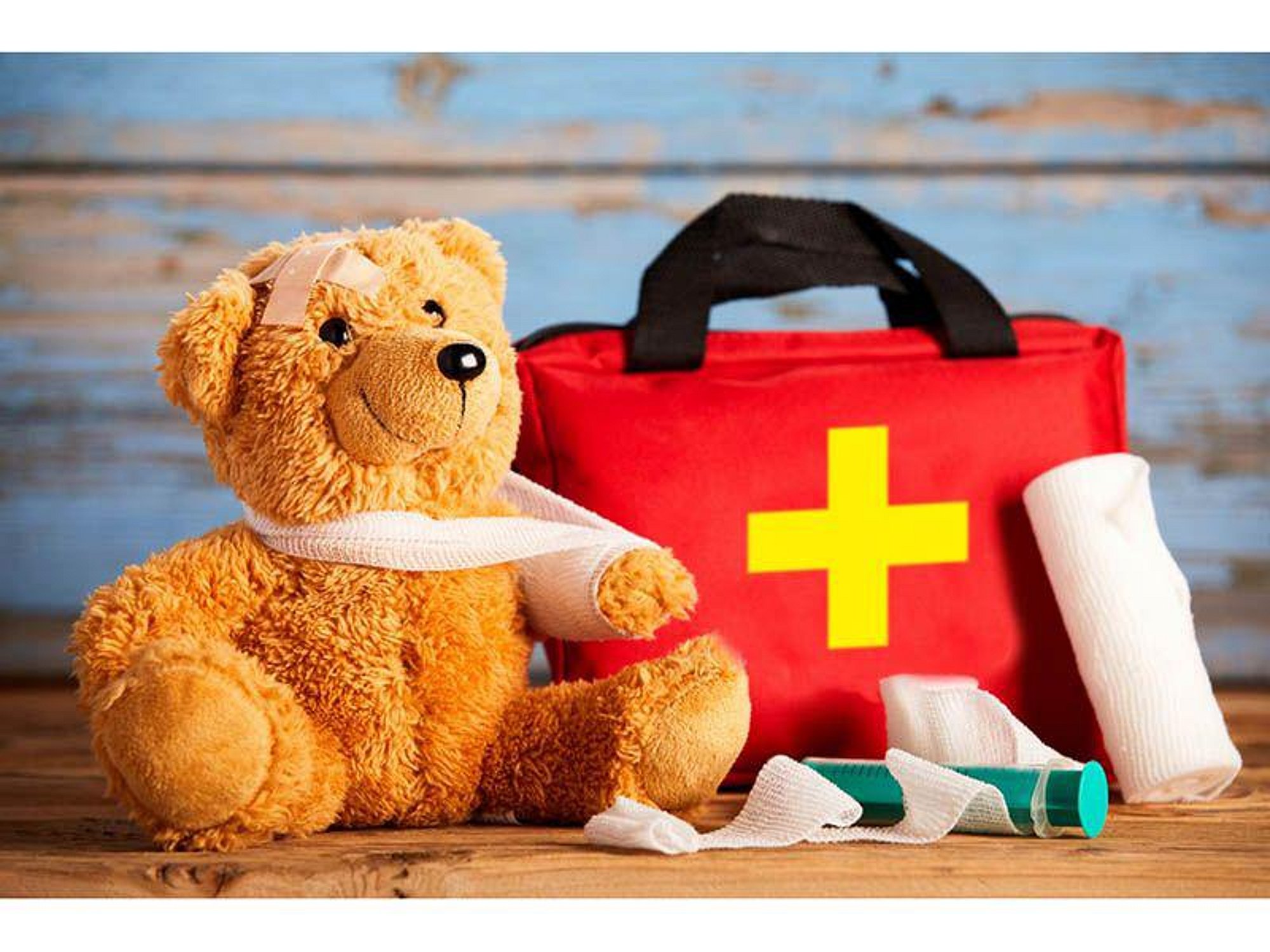First-Aid Kit for Family Travel

Use this checklist to make sure you have adequate supplies for dealing with minor medical problems while traveling with children. You can pack the items in a small tote, a lunch box, or a zip-top bag -- whichever is easiest to stow.
It's also a good idea to check with your doctor to make sure you're up-to-date on all of your vaccinations. Your doctor can also tell you if you should take along antibiotics for malaria or traveler's diarrhea, or whether there are other medical issues to be concerned about in the country you're visiting.
The essentials
- Prescription and allergy medications. Carefully write down the prescriptions your kids use (exact drug names and dosages) and your physician's phone number, just in case. Place a copy of these notes somewhere accessible (like the glove compartment) and apart from the actual medicines. Keep in mind that some pharmacies accept only local prescriptions.
- Children's acetaminophen or ibuprofen. Either can lower fever and ease the pain of headache, sprains, and ear infections. If you use the liquid form, bring along a measuring spoon.
- Antihistamines. Benadryl and other antihistamines relieve hay fever, rashes, itchy insect bites, and stuffy noses. They may have a sedative effect, which is why some parents use them for kids who get carsick -- giving a dose about 30 minutes before the drive begins. You could also use Dramamine (dimenhydrinate) for this, but try it on your child before the trip, since some kids become agitated rather than drowsy when they take it. Also, don't give Dramamine to children under 2 years of age.
- Diaper rash ointment.
- Broad-spectrum sunscreen and lip balm with a sun protection factor of 15 or higher.
- Sterile adhesive bandages. Buy assorted sizes to cover a range of cuts and scrapes.
- Disinfectant. Include a small bottle of hydrogen peroxide or rubbing alcohol, and use it only for cleaning dirty cuts and scrapes (disinfectants are powerful enough to damage healthy tissue); otherwise just wash with soap and water.
- Antiseptic towelettes or hand sanitizers are a good travel option.
- Cotton pads and balls to clean up scrapes.
- Antibiotic ointment, such as bacitracin. To ward off infection while cuts and scrapes heal.
- Cortisone cream. To soothe insect bites and rashes.
- Insect repellent. No stronger than 30 percent DEET for kids and adults (and should not be used on children younger than 2 months of age).
- Thermometer. You'll need this to gauge how sick your child is. Use a rectal thermometer for kids under age one (don't forget some lubricating jelly), a digital thermometer in the armpit for kids ages one to three (add two degrees for a more accurate reading), and a digital oral one for older kids.
- Tweezers. For removing splinters or ticks.
- Cold pack. Buy one that doesn't need to be frozen; you squeeze this type to start the cooling reaction.
- Small scissors and moleskin. If your family will be doing a lot of walking, you'll want to protect your kids' feet against blisters.
Further Resources
Centers for Disease Control and Prevention
Travelers' Health
http://wwwnc.cdc.gov/travel/
References
Robert H. Pantell M.D., James F. Fries M.D., Donald M. Vickery M.D., Taking Care of Your Child: A Parent's Illustrated Guide to Complete Medical Care. Da Capo Press.
Centers for Disease Control. Travelers' Health, Yellow Book: Motion Sickness. http://wwwn.cdc.gov/travel/yellowBookCh6-MotionSickness.aspx
American Academy of Pediatrics. Follow Safety Precautions When Using DEET on Children. http://aapnews.aappublications.org/cgi/content/full/e200399v1
Mayo Clinic. First Aid Kits: stock supplies that can save lives.
Related Posts
Extreme Heat Can Bring Extreme Heart Dangers
SUNDAY, June 19, 2022 (HealthDay News) -- The record-breaking heat that's...
Report IDs Those Likely to Receive Meds for Opioid Use Disorder in Pregnancy
THURSDAY, May 4, 2023 (HealthDay News) -- Persons receiving medication for...
¿Sin vacunar y con problemas cardiacos? Esto puede resultar letal con la COVID
VIERNES, 6 de mayo de 2022 (HealthDay News) -- Las probabilidades de fallecer o...
AHA News: Pulmonary Embolism Is Common and Can Be Deadly, But Few Know the Signs
TUESDAY, Nov. 23, 2021 (American Heart Association News) -- Public radio fans...
